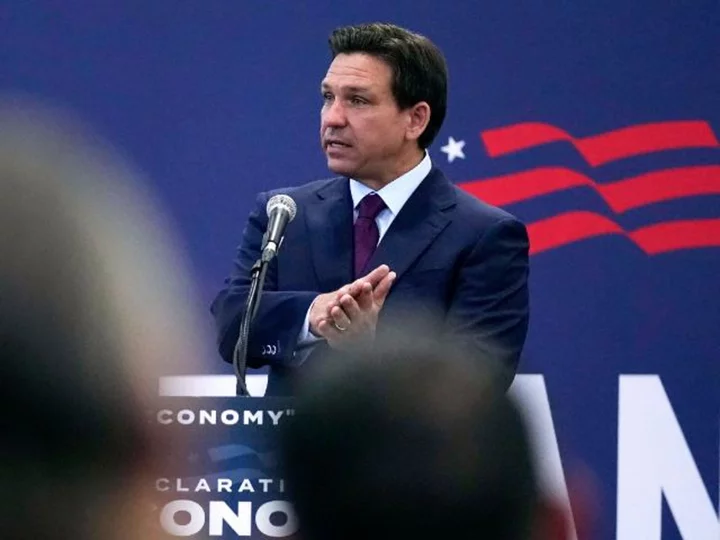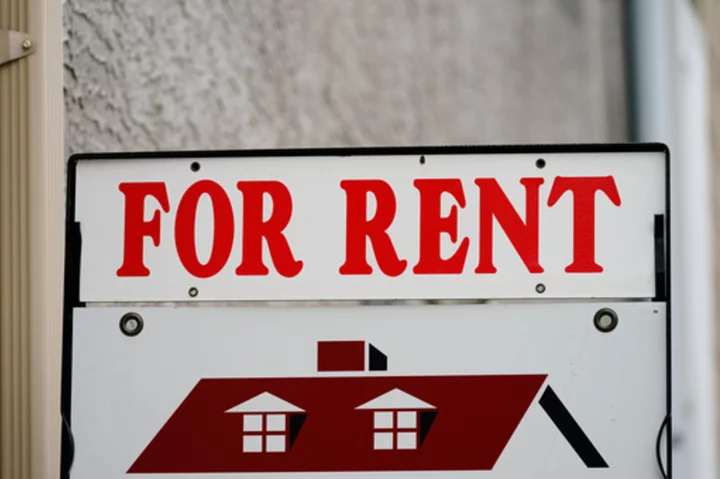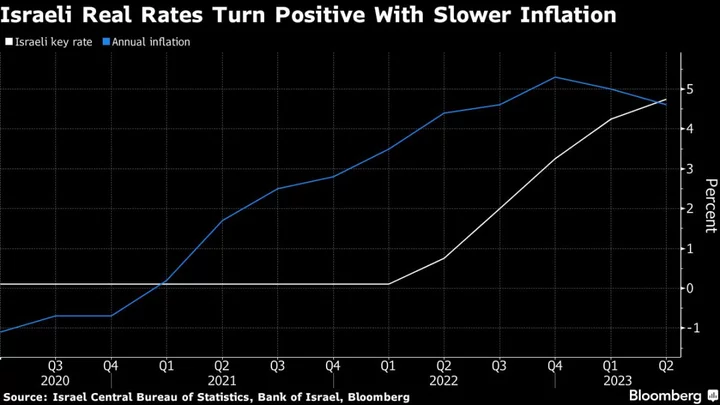Florida Gov. Ron DeSantis is positioning himself as the economic defender of the American family, building on his claim that he is protecting them culturally.
The 2024 Republican presidential candidate on Monday released a 10-point economic plan, which he describes as a "Declaration of Economic Independence." DeSantis, who remains far behind former President Donald Trump in the polls, is seeking to reboot his campaign by highlighting his record for families and businesses in Florida.
In his economic proposal, he points out that financial inequality has hurt many Americans, sounding at times like Vermont Sen. Bernie Sanders, a former Democratic presidential candidate at the other end of the ideological spectrum.
DeSantis notes that the bottom half of households have less wealth today than in 1989, while the top 10% have added $29 trillion to their net worth over the same period. Multinational corporations, particularly tech companies, have seen a massive surge in wealth, while also securing large bailouts and carve-outs -- which he terms "venture socialism" that privatizes gains but forces taxpayers to bear the losses.
"'Too big to fail' for big institutions has led to 'too difficult to succeed' for the middle class," the plan reads.
However, DeSantis outlines a different path to prosperity than Sanders, a progressive who would give the federal government a bigger role. The governor's agenda contains a mix of traditional Republican and populist ideals, while promising to reverse many of the policies pushed by President Joe Biden and Democrats in Congress.
Here's what's in DeSantis' economic plan:
Change the US relationship with China
DeSantis, who signed a bill this year aimed at limiting China's influence in Florida, wants to reverse the nation's trade deficits with China, ban imports of goods made from stolen intellectual property and end China's preferential trade status.
He would also prevent American companies from sharing critical technologies and bar the sale of assets such as farmland to Chinese Communist Party members and their affiliates. The Florida law prohibits China from purchasing farmland and certain other properties.
Incentivize investment, eliminate bureaucracy and mandate work requirements
DeSantis has a goal of achieving 3% economic growth by slashing regulations -- which he said inject "ideological extremism" into the American economy -- and overhauling the tax system to incentivize corporations to invest in the US long term.
The plan also calls for permanently extending the lower individual tax rates contained in the 2017 Tax Cuts and Jobs Act, which was passed by Republicans in Congress and signed by Trump.
Plus, DeSantis would restrict lobbying, move federal agencies out of Washington, DC, and ban individual stock trading by Congress and executive branch officials.
The governor would also institute work requirements for safety net programs and curtail federal spending, two GOP mantras.
Unleash American energy independence
In line with Republican beliefs, DeSantis would reduce regulations and permitting requirements on the nation's energy sector, which he argues would increase economic and national security, reduce inflation and create jobs.
The governor would also reverse efforts by Biden and Democratic lawmakers to push people to buy electric vehicles.
End so-called 'woke policies'
DeSantis, who has heralded his opposition to liberal social and diversity programs, would not tolerate companies' use of environmental, social and governance standards, known as ESG, as a way to do "an end-run around our constitutional system to impose heavy-handed, left-wing edicts."
Plus, he would instruct the Justice Department's Civil Rights Division and relevant agencies to eliminate what he termed as "discrimination under the false guises of diversity, equity and inclusion." And he would prohibit organizations with DEI policies from receiving federal grants.
In Florida, DeSantis signed a bill this year that expands upon measures to block state investments based on ESG factors and threatens banks and other financial institutions with sanctions if they deny business to people due to moral or political objections.
Also, he signed legislation that bars Florida state universities from spending state or federal funds to promote, support or maintain any programs that "advocate for diversity, equity, and inclusion, or promote or engage in political or social activism."
Reform the US educational system
DeSantis, who has taken an active and controversial role in Florida's education policies, would support school choice and protect parental rights. He would work with the private sector to enhance vocational and apprenticeship programs, a common pledge for many presidents and aspirants to the Oval Office.
In addition, he would seek to make it easier to discharge student loans through bankruptcy and make universities, not taxpayers, responsible for loans their students accrue.
Change immigration policy to improve the labor market
The governor says he would make the labor market fairer for American workers by securing the border, limiting unskilled immigration and eliminating chain migration and the diversity visa lottery.
He also would make destroying the fentanyl market a top priority.
Rein in the Federal Reserve and oppose bailouts
DeSantis, who has repeatedly criticized Federal Reserve Chair Jerome Powell and the central bank's multiple interest rate hikes, would appoint a Federal Reserve chairman who would focus on stable prices and ensure the Fed does not implement a central bank digital currency. The governor, who signed a law this year prohibiting the use of such a currency in Florida, argues it harms innovation and enables government surveillance and control of people's finances.
Also, he would protect cryptocurrencies as well as community and regional banks. DeSantis would require better disclosures by banks and other financial institutions to increase transparency and better track systemic risks. And in an economic crisis, he would try to strip those accountable of golden financial parachutes.









